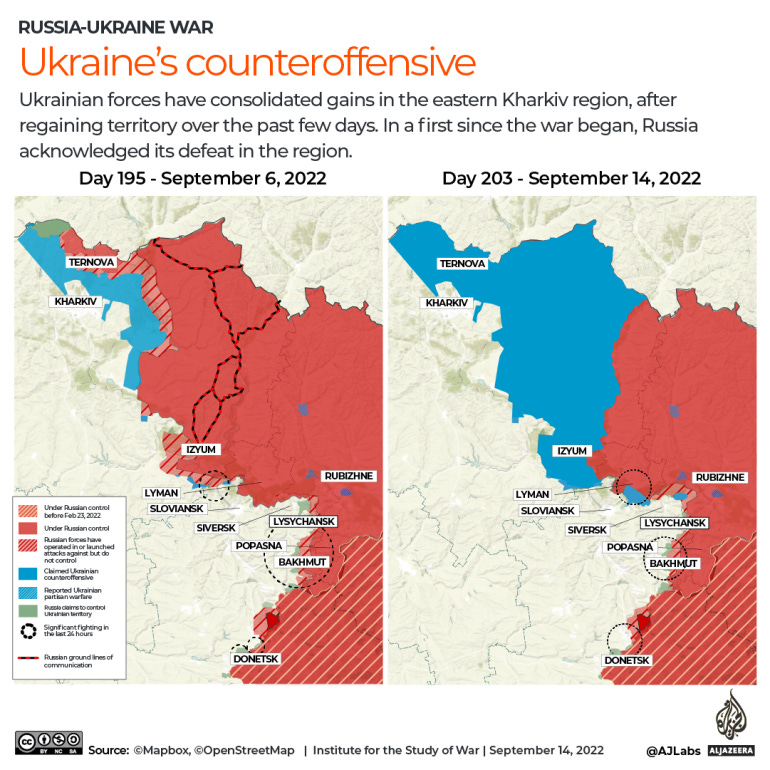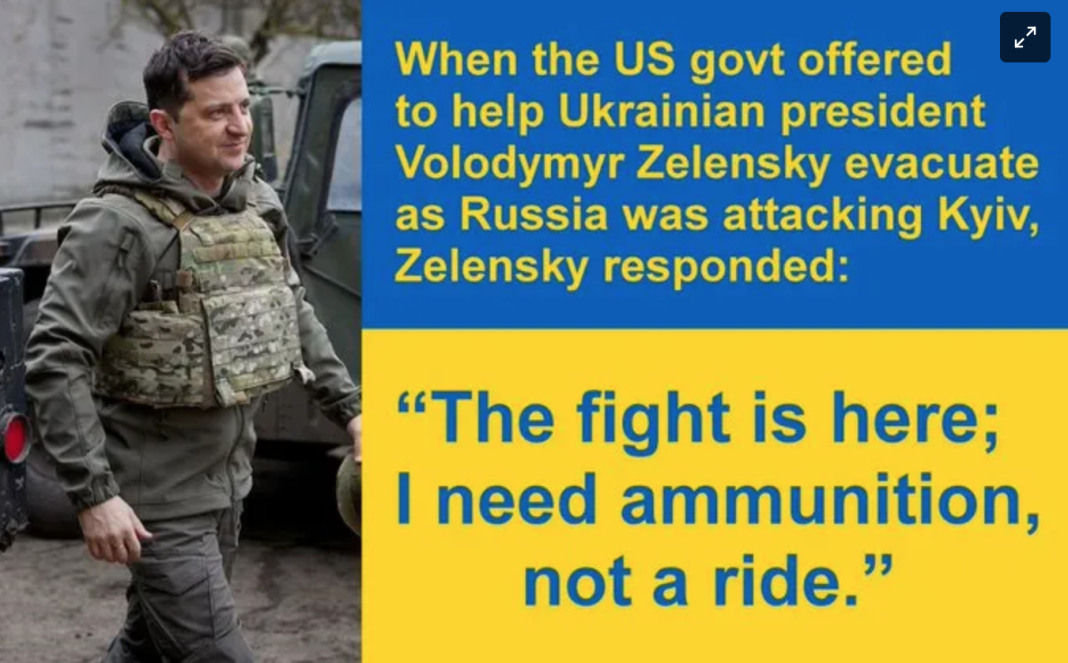For all the intelligence successes, there was one enormous failure. The West overestimated the power and competence of the Putin regime. Zelensky’s quote for the ages in the – “The fight is here; I need ammunition, not a ride” – was his reply to an American offer to fly him out of Kyiv. The US was convinced the Russians would take the city .
In evidence to the Commons defence committee just before the war began, two of the leading Western defence analysts, Samuel Cranny-Evans, of the Royal United Services Institute and Rob Lee of the Foreign Policy Research Institute, envisaged a “fast and lethal” Russian attack “that could mean destroying air defences, aviation, artillery”.
I am not singling them out. Prime ministers, presidents, foreign ministers and journalists believed that a military superpower must surely topple the Ukrainian government and install a puppet regime.
The dissenters were found in Ukraine itself and among military academics who knew that armed forces reflect the societies that create them. In Russia’s case, that meant they were corrupt, demoralised and incapable of arguing back against the delusional aspirations of the big boss in Moscow. Russia was closer to a failed state than a superpower.
Tens of thousands began to follow the social media accounts of Phillips O’Brien of St Andrews University and Mike Martin of King’s College, London, as they presented the open-source intelligence and military arguments which showed that the Tsar had no clothes
Next week Mike Martin will publish How to Fight a War,a guidebook to understanding the (often terrible) decisions of politicians and generals. The opening pages give his first message that “the record of 19th and 20th centuries is that more wars are lost, or stumble towards an inconclusive draw, than are won”. The rest of the book explains why. War is the most complex task a society can undertake. The room for catastrophic error is boundless.
I thought it was well worth interviewing Mike about why he remains convinced that Ukrainians have a chance of driving the invaders from the whole of their country. I began by going back to February 2022 and asking what he saw that others missed.
Mike Martin: “Before the invasion I said ‘The Russians are definitely not going to invade because they just don’t have enough troops. It’s ridiculous. They’re out by a factor of 10 for what they want to achieve.’ Then they invaded and everyone said, “Oh they’ll get into Kyiv in two seconds flat’.”
Mike and other sceptics looked at the open-source intelligence on Telegram and Twitter, which told a different story.
“There was lots of boring stuff that wasn’t getting picked up by the media. Reports of trucks running out of fuel. The tyres were breaking because they were cheap. Quite poor morale.
These are the fundamentals of war. The military capability in terms of numbers of troops and in terms of logistics, quality and morale was not up to the task Putin had set. I think I said towards the end of February that this is not a done deal at all. It became clear after that the Ukrainians were using exactly the right tactics. They were letting the Russians bypass them and then hitting up their supply lines in the rear. They allowed the head of the armoured column to go past them and then just blasted all the vehicles behind. And as soon as you cut off the fuel that’s it. The column grinds to a halt.”
Mike identified a weakness in the focus on human interest of traditional war reporting. It’s hard to say this without sounding heartless, but however essential reports of Russian war crimes are, or of descriptions of attacks on civilian targets, or of life on the frontline, they remain pinprick accounts unless they zoom out to give a wider account of the course of the battle.
“I think there’s been a hunger for military analysis. You can see that in how people turned to people like me and Phillips O’Brien. Social media destroyed much of traditional journalism. Now we have a situation where, because stuff breaks on Twitter early, and Twitter is where experts can pull together disparate sources, it becomes news.”
Mike’s wider analysis is that Putin has made a catastrophic mistake. Nothing he has seen since February 2022 has shaken this view.
“Even the people who know Russia and speak Russian say Putin’s campaign is as nuts as we think it is. Unless they are missing something, I can’t see any grand Russian plan or great competence. I see very little that’s clever. When people talk about Russia’s military strategy, they assume that Russia is a cohesive functioning political unit. But I think there are a couple of issues with that assumption.
Issue number one is that Putin is not being told the truth. There is absolutely no way that he would have announced the annexation of those four territories [the Donetsk, Kherson, Luhansk and Zaporizhzhia oblasts Russia claimed in September 2022]when anyone could see that it was only a matter of time before the Russians lost Kherson.
The second issue is the factionalism in the Russian forces between Wagner and the mainstream military we see in the power games going on in the fight for Bakhmut. The headline Russian strategy is taking Donbass. But strategy is not just goals but ways and means. So while there’s probably agreement on the goals I don’t see much agreement on how they are going to be achieved between the different power centres.”
Twenty-years ago, I passionately wanted Saddam Hussein’s Baathist regime to fall. I had covered the gas attacks on the Iraqi Kurds, and the reign of terror in the rest of the country. History suggested that the best thing to do with a leader supported by a personality cult who gassed ethnic minorities was to overthrow him. I fell victim to confirmation biases.
I asked Mike whether there was a danger that millions were now overestimating Ukraine’s chances because they so passionately wanted to see Putin defeated. He did not think so. Unlike the Russians, the Ukrainians had a clear goal, and Western intelligence and weapons gave them the means to achieve it.
He saw far greater flexibility on the Ukrainian side, and pointed to the Kharkiv offensive in September as supporting evidence.

“The Russians were trying to smash into Sievierodonetsk and the Ukrainians were trying to grind them down there as they are grinding them down in Bakhmut today. The under-reported story when everyone was focused on Sievierodonetsk was that the Ukrainians were taking territory towards Kherson. And then all of a sudden Kharkiv happened with no warning because the Ukrainians spotted a thinning in the Russian lines because Russian generals were moving troops to bolster Kherson.
Given the Ukrainians’ ability to surprise, Mike thinks that no one, least of all the Russians, can know the target of their next offensive.
“I think they’re not going to push the Russians out of the east first because that’s where Russian combat power is concentrated. They need to hold and wear down Russian forces in the east, which is exactly what they are doing in Bakhmut.
There will be a huge goal in cutting south to the Black Sea coast because it severs the Russian forces in two, and allows Ukraine to knock out the Kerch bridge and isolate Crimea. It’s really obvious so maybe they won’t do it. There’s Boolean logic to Ukrainian strategy ‘if this then that’.
The big point is that it’s not going to be a grinding war of attrition to push the Russians out of all of Ukraine. Kyiv doesn’t have the strength to do that. The only way to win is by doing punchy stuff, like they have done in Kharkiv, and dislocating the Russian forces. War is psychological and political The Ukrainians will be asking what is the best way to unhinge the Russian command structure and precipitate a political collapse.
The route to victory goes through Moscow. The Ukrainian leaders don’t need to defeat every last Russian soldier, they just need to create a military effect that reshuffles the deck in the Kremlin and brings Putin down.”
Mike is an amiable man, but he grows angry when he discusses the failure of European leaders to understand the stakes.
“We had all this bullshit from Macron and other leaders who have grown up in the post-Cold war long peace. ‘Oh, we mustn’t humiliate Putin!’ They think of war as a spreadsheet rather than a psychological battle and they think there’s a landing zone where we can help Ukraine win without Putin losing face. But that’s not the way geopolitics works.
We are resettling the question of where the eastern borders of Europe are. And in order to settle that question in a way we can live with, Ukraine has to win. We have to give them shitloads of resources so they can win and I think we have finally worked that out. Ukraine winning means Putin loses, and there is no way he can survive losing this war.”
I look doubtful. But Mike Martin remains the cautious optimist he was in February 2022.
“Russia can’t go on like this. The best its generals can possibly do is take the whole of Donbass and declare peace. But the Ukrainians aren’t going to stop if they do, so the war will continue. There’s no way Russia can win. Ukraine can win, but it’s an uncertain path to victory.”
Leading British commentator Nick Cohen writes from the email newsletter platform Substack. Substack is increasingly used by freelance writers.



